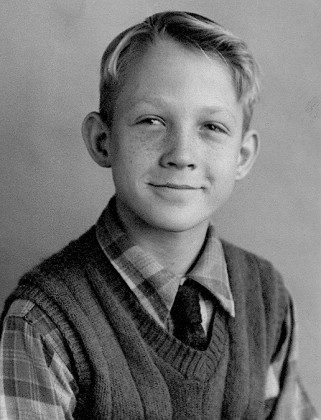
20 Questions with Fr. Bernie Rosinski, SCJ
Favorite color? What makes you happy? What are you good at? What is your greatest fear… “Twenty Questions” is a regular feature in which SCJs and those with whom they minister and collaborate share a bit about themselves in an informal Q&A, each answering 20 questions.
Q: Where were you born and raised? Describe your family.
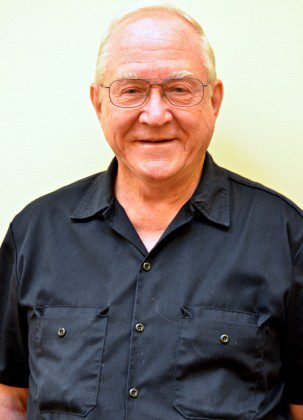
My name is Bernie Rosinski. I was born in Detroit, MI, on the east side. By the time I was five, my parents had purchased a home in St. Louis the King Parish where I went to grade school (I understand the church buildings have all been sold now). My father was a Detroit city fireman, a job he loved. My mother was a homemaker, in name and in fact. I have one brother and two sisters, all of whom are alive and well today. We are spread about: a brother and sister in California, a sister in Florida, and me in South Dakota. My retired brother has an engineering and law degree and worked for an international engineering firm; one sister has a master’s degree in English literature and was a school teacher for many years before she retired; a third sister has a bachelor’s in nursing science and worked as a surgical nurse before she retired.
Q: What is your favorite book or movie?
I have favorites in both categories. However, if you ask me which have I read or seen the most often, hands down it is: Pride and Prejudice. I must have read the book maybe 30 times in my lifetime, and listened to it on CD at least 12 times. I have all the movie versions on DVD and like to watch them in sequence, sometimes with a copy of the novel in my hand. If you were to ask me why, I would say to you that Jane Austen is an absolute master of the English language. Part of her mastery is due to the fact that she understood the Latin roots of the language. I also see and appreciate its great message: gratefulness leads to love. Nowhere is this truer than in our relationship with God. The better we grasp his goodness to us, the more we are moved to love him and see his love for us.
Q: If you could travel anywhere in the world (without concern about the expense) where would you go and why?
I find the southern third of Latin America the most fascinating. I would love to visit Patagonia in Argentina and visit the mountain ranges there. I would do so even now at my age. [Fr. Bernie is 82] However, wouldn’t it have been more wonderful if I could have fulfilled this fantasy of mine when I could hike with impunity?
Q: What are you good at?
I think I am good at seeing how systems work. Most of the work I have done in my lifetime has had to do with administration. I don’t think I would make a great CEO (I don’t have the patience and am not flexible enough), but I would make a good assistant or aid.
Q: What is your favorite color?
My favorite color is the color of the ocean around noon on the sunward side of a ship. It cannot be replicated by man’s efforts. But I can spend hours just staring at the color.
Q: Do you have any hobbies or pastimes? If so, what are they and how did you get interested in them?
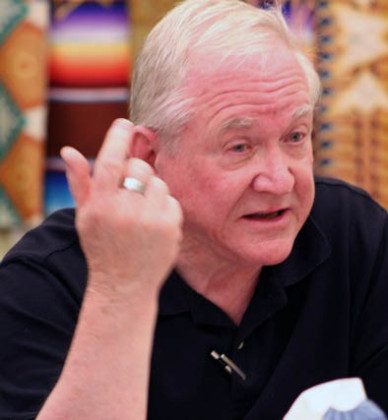
I love photography, more especially nowadays when we don’t have to concern ourselves with film. I got interested in it because I was sent to Europe for my graduate education. The only way I could share my new life with my family and friends back home was to take pictures of what I saw and to write about it. A corollary to the photography pastime is making cards from photos I have taken with computer programs like HP Photo Creations.
When I was younger I loved to hike and bike. I biked through eastern Canada and the US from Detroit to Boston Harbor. I biked with my nephew from Michigan City, IN, along the western shore of Lake Michigan into Door County, WI, and back to cross by ferry into Michigan and along its eastern shore to Mackinac. I hiked and tented in various state parks in Wisconsin. I would often do the same in Indiana in the woods on the seminary grounds when I resided there as a faculty member – going out on a Friday afternoon and returning on Sunday. I don’t believe my motive was to be a “rugged individual”. I believe that it allowed me to slow down the pace at which I, as an American, was living.
At present, I am studying koiné Greek to help me read the sacred scriptures of the New Testament in the language in which it was largely written. The nuances that suggest themselves in the understanding of the bible are almost limitless. I am lucky, too, to have some computer assistance. This pastime helps me progress in my current educational undertaking.
Q: What is your favorite food?
While I love most foods, I would tend to think that my favorites range between lasagna and pizza, both with either a cold beer or a cold diet Pepsi/Coke will do for me and never do I have to look very far for either. I don’t think I could survive if I had to choose between them.
Q: What is your least favorite chore?
I believe that I dislike filing papers and records most of all. It’s not the effort involved in sticking paper into a file cabinet or folder; it’s the idea that the document(s) will have to be retrieved some day: have I put it in a place where someone (including myself) will look for, and find it?
Q: Who — living or deceased — do you most admire and why?
I was once asked a similar question on a comprehensive exam by a university committee over 30 years ago and my answer is the same today as it was then: Mother Teresa of Kolkutta (I am so pleased that she will be canonized a saint this year). They asked me why I responded as I did as well. My reason remains the same: Mother Teresa taught and exemplified, in a way that no other person I know of has in our day, that every single human being has infinite worth, including the dying, the leprous, the abandoned, the unborn.
Q: What would surprise people to learn about you?
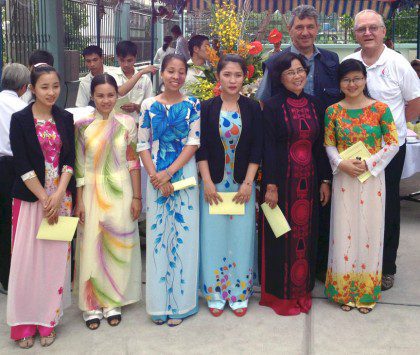
Probably that I taught myself mathematics would surprise people. They know that I double-minored in applied statistics (I was strongly advised to steer away from the subject). But the science fascinated me; I saw it as a new way to see reality (at least some reality). As I was studying it, I would wonder why this, or why that. I soon began to see that I was woefully deficient in math (the subject is not greatly esteemed in seminary education programs). So I bought (mostly second-hand) self-help books (e.g., Algebra for Dummies) and began working my way through them: Arithmetic, Algebra, Advanced Algebra, Analytic Geometry, Trignometry, and even the Calculus (though I haven’t gotten very far in this yet…).
Q: What skill or talent would you like to have that you do not? Why?
To my way of thinking, what I lack is the power, ability, skill, talent (whatever) to concentrate and focus. My mind wanders greatly. I think I have some kind of attention disorder and have had it all my life. However, one plays cards with the deck one has.
Q: As a child, what did you want to be when you grew up?
Pretty much always, I wanted to be a priest. I was never sure what kind of priest, though the missions were attractive. Yet I must confess that other occupations also attracted me. So I wanted to be a hyphenated priest: a priest-pilot, a priest-fireman (like my dad), etc.
Q: What makes you happy?
This is a great question but not one I could have answered just a few years ago. It seems to me that I am happiest when I am doing right (by God, by myself, by others). Conversely, I am unhappiest when I have done wrong (by God, by myself, by others).
Q: What is your greatest fear?
I think my greatest fear is losing the love and respect of family, friends, and fellow-religious because I have done wrong by others. I used to think that I had to earn their love and respect. Now I am beginning to see that over the years they have offered me their love and respect graciously and gratuitously and now it’s mine to lose. I would hate to lose it.
Q: What trait or habit do you dislike in yourself?
Ha! This question gets close to the bone. I have to say that what I dislike most in myself is how I see myself: perfect in every way, with full knowledge of the right way to act and do things, and my behaviors the only way in which others should act. Thus I am opinionated, vain, and fixated.
Q: What trait or habit do you dislike in others?
The very same things I dislike in myself.
Q: List three words that describe you.
Frank, sensitive, bright.
Q: How did you come to know of the Priests of the Sacred Heart?
With my interest in priesthood already present at an early age, when it came time to pick a diocesan seminary in which to be educated, there was one I did not wish to attend: a regional seminary that catered to a particular linguistic group. I learned, however, that because of my national background I could not attend the seminary of my choice. So I waited until I felt my problem was solved when Fr. George Pinger, SCJ, visited our parochial school with a slide show. He even talked about the name of his seminary, a name that attracted me: Divine Heart Seminary. There I spent four years in a high school boarding seminary and it felt like four years at summer camp: I felt like I belonged.
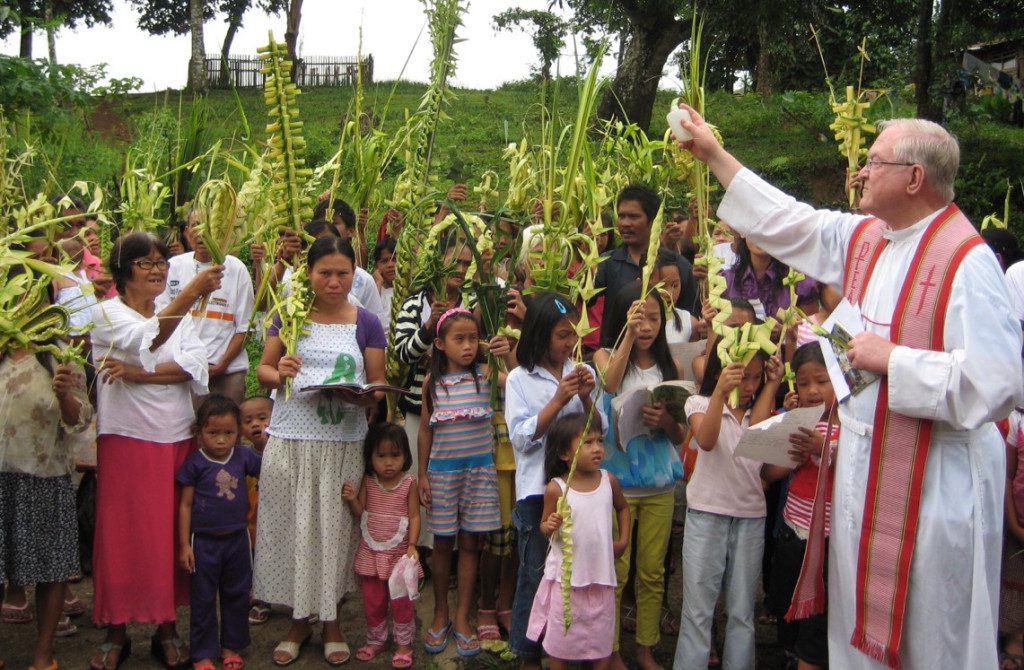
Q: What interested you initially when you learned about the SCJs? What interests you about the SCJs now?
I don’t think I knew anything about the SCJs when I entered their seminary. I had only met their rep and spokesman, Fr. George, and he seemed like a good enough priest and that’s about all. I did most of my learning about the SCJs right in the seminary, observing how they treated each other, watching their fidelity to prayer, to work, to service, in the classroom, etc.. I was impressed. For one teacher I had an old German missionary priest who had been expelled from his mission at the end of WW I and I was greatly awed by his dignified conduct and behavior. More than anything else what stood out about the SCJs was their sense that even high school boys are capable of a spiritual life and the entire seminary program was witness to that as were the religious members of the SCJ community. I came away with a firm conviction that I was meant to love God with my whole heart, my whole soul, my whole mind, with all my strength and my neighbor as myself. That has stayed with me and I still have that same sense today about my fellow SCJs: they, too, act and feel that this is our main purpose in life. I have been fortunate enough to have lived among saints.
Q: Do you consider yourself a Dehonian? If so, what does that mean to you?
Yes I do consider myself a Dehonian. But my understanding of what that means has evolved greatly over the years, in part because I am older and (hopefully) wiser and thus more focused on what is more essential for the eternal life that is just around the corner, and in part because our community understanding of the spirit left us by the Founder, Fr. Leo Dehon, has grown as well. We have together studied and examined his spirituality and the context in which he lived and the focus he had and the concerns that worried him. We saw how he himself adapted and grew. It has been an inspiration.
I understand a Dehonian to be:
– a person who is convinced that God loves him/her (cf. I John 4:16);
– a person who is a citizen of the world as well as of his neighborhood;
– a person who is ready and available to be used by others;
– a person who nourishes his spiritual life through the sacraments, particularly the Eucharist, in celebration and in adoration;
– a person who is always learning and can never learn enough;
– a person who engages in offering himself as victim with Christ, particularly through the profession of obedience, chastity, and poverty;
– a person whose personal and real rule book is the gospel;
– a person whose active and responsive membership in the body of Christ, the Church, is important to him/her;
– a person who sees the “Heart” as the best icon or image to envelop all of the above.
